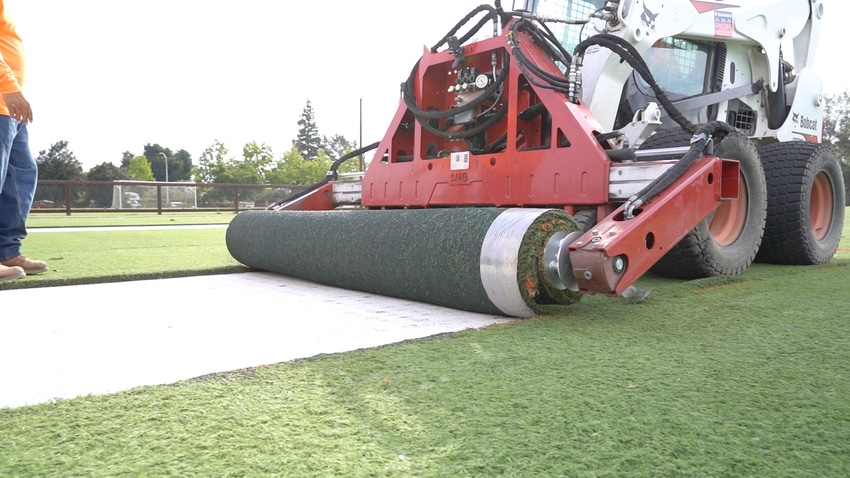TenCate Eliminates PFAS From Its Artificial Turf
The company replaced a processing aid containing the “forever chemicals” in its artificial grass.
January 11, 2024

Synthetic turf manufacturer TenCate has taken a giant step toward stomping out persistent chemicals known as PFAS from its products.
In an audit of its manufacturing processes, TenCate engineers found that a processing aid used in fiber extrusion for its top-of-the-line artificial grass contained trace levels of non-soluble PFAS. Finding a replacement aid without PFAS led to the milestone the company announced this week.
“It’s important to note that third-party testing of previous versions of our artificial turf detected only minuscule levels of non-soluble PFAS,” noted Joe Fields, president and CEO of TenCate Americas. “These were far lower than the levels that have been found in common consumer products like dental floss and prescription medications, and significantly less than that allowed by the Food and Drug Administration in packaging for food. We still took action, however, because we’re dedicated to giving our customers complete peace of mind.”
As the EPA explains on its website: “Per- and polyfluorinated substances (PFAS) are a group of man-made chemicals that persist in the environment. These chemicals have been used for decades in consumer products to make them non-stick and water resistant. They are also found in firefighting foams and are applied in many industrial processes. Unfortunately, the characteristics that make them useful are the reason they persist in the environment and can bio-accumulate, or build up, in our bodies and the bodies of animals.”
TenCate, which manufactures, distributes, and installs synthetic turf for sports and landscape uses in more than 40 countries, has undertaken other sustainability initiatives, including:
A turf recycling partnership with Cyclyx International and ExxonMobil to recycle end-of-life synthetic turf across the United States and create feedstock for new turf and other products.
GeoCool infill, a biodegradable alternative to rubber made from a 100% recyclable, nontoxic inorganic mineral.
“We are relentlessly innovating to make cutting-edge turf that exceeds all expectations for performance,” Fields said. “That means putting quality and sustainability first in everything we do — from research to design to manufacturing.”
About the Author(s)
You May Also Like


